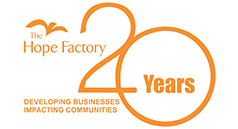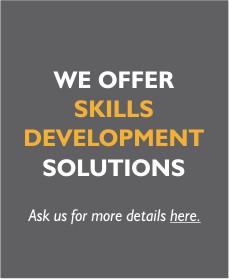'Don't work in isolation' - Ntshantsha Tafeni
Published by www.smesouthsfrica.co.za on 28 May, 2015
Company Profile
Name of company: Yivani Naturals Products Range
Years in existence: 4 years
Position: Owner and Founder
Location: Blairgowrie, Randburg
Can you tell us a little bit about your company and what you do.
Yivani Naturals was established in 2011. We manufacture beauty therapy products, and cosmetics made with natural South African indigenous oils.
The company responded to the growing shift in the world towards natural health alternatives to add value to holistic therapy of mind, body and soul.
Our product list includes: pure essential oils, massage oils, face, body, bath and foot ranges.
We export to the UK, Canada, Nigeria, Ghana, Zimbabwe, Liberia, Swaziland and Lesotho. Locally we distributing through cosmetics stores, health spas, health shops, salons, exhibitions, online shops. We plan to soon open a standalone shop.
Can you tell us a little bit about your background – personal, educational and professional?
I am very passionate about herbs and natural healing alternatives. I grew up using herbs but diverted to conventional medicine at some stage.
It was while I was pursuing a career in marketing - through research - that found that I could still go back to using herbs, but in another form. I could get the same benefits from herbs in an oil form.
"Educate yourself about your industry"
This got me to start researching oils made from herbs that are popular amongst SA communities.
What were some of the obstacles you faced starting out, and how did you overcome them?
Being a small to medium enterprise, it's always difficult to convince people that you know what you are doing, and that your products are as good as those made by big companies.
Other challenges was building manufacturing capacity and getting funding for this, and cracking into the big retail stores in South Africa.
I also had to get my product tested for quality and efficacy, and these are often very expensive tests.
Lastly, getting into the government incentives schemes or participating in local and international entrepreneurship development programs was an obstacle I had to overcome.
How many people does your company employ?
Currently Yivani is in a transition phase, we are planning to move to a big manufacturing facility in three months time, which will push up the number of employees quite significantly. Currently we have 5 permanent and 3 part-time employees.
What is your overall vision for your business?
We are committed to growing a successful South African black-owned business with an international footprint.
Yivani's business philosophy is based on the principles of growing with others as we grow. We are built on a foundation of empowerment (lifting others as we rise), thus setting a trend that if you can dream it, you can do it.
What do you think it takes to establish and run a successful business in South Africa?
Again, it really helps to persist to knock on all doors. I had to research and look for all the help I could get. There are a lot of SME development programmes out there.
The private sector through BEE compliance have started to explore entrepreneur development. Also beneficial are mentorship programmes offered by centres like The Hope Factory, government and its agencies, and the Branson Centre of Entrepreneurship.
Attending business networking sessions and creating exposure for your company by participating in exhibitions also helps.
Don't work in isolation. Most of all, do educate yourself about your industry, keep equipping and updating yourself with relevant skills needed to run a company.
How did you finance your business, how difficult or easy was the process?
From my own pocket. When the company was formed I had a very good business partner Bulelwa Mapongwana, who resigned from the business 3 years ago.
We were both eager to build a brand of our own, and we dug into our own pockets. Our pockets were not that deep, hence the funds started drying up quickly.
My husband and family have been very supportive during these dry patches, financially and emotionally.
I then looked to the banks who rejected my proposals out right. That didn't discouraged me, I continued pursuing my dream.
"Being in business needs tenacity and serious patience"
I joined The Hope Factory Mentorship programme which offered grants for operation among other support systems like business skills training, and a great networking platform.
When did you know that you were an entrepreneur?
I've always known that I will end up running my own business, this is something I knew at an early age. At home I was also surrounded by people who were always selling this or that, my grandmother, mother, aunts, uncles, sisters were all selling to complement their income. I enjoyed this, and knew that I would grow up to do this.
Even when I was employed I was constantly looking for business opportunities outside work. Being employed was a platform to gain all the well-rounded experiences I now have.
Being in marketing was a blessing in disguise as I then learned how to run a company, because as a brand or marketing manager you need to have the relevant skills for running a company, including: finance, HR, PR, brand building and new product development.
How would you describe your leadership style?
As an employer I like involving my team. I believe in acknowledging great performance, I believe in empowering people, and I believe in encouraging great teamwork.
We have great platforms where we are implementing some of these through our internship and distributor empowerment programmes, and in the workplace in general.
What three pieces of advice would you offer young entrepreneurs starting out today?
1. Being in business needs tenacity and serious patience. There is no instant gratification, you have to work hard in order to get lasting success in business. Synergies, joint ventures and using existing business networks are very beneficial.
2. Organisations like The Hope Factory are there to give mentorship, business skills development, financial resources, great networking platform, and just having the ear to listen.
3. You have to be resilient and persistent. Believe in your capabilities. Believe in your dreams and have huge ambition and drive to succeed.
What do you wish you had known starting out?
That it's going to really hard and lonely out there, and that I would need to have a financial cushion in order to survive, that I need to add 24 hours to my day. But in saying all that - I do not regret the journey. It's been a rollercoaster, but I now know that I should not work alone, there is help out there.
And finally, do you believe in luck, hard work or both?
No I do not believe in luck. I believe in the Gary Player quote: "The harder I worked the luckier I got" so luck comes with hard work.










